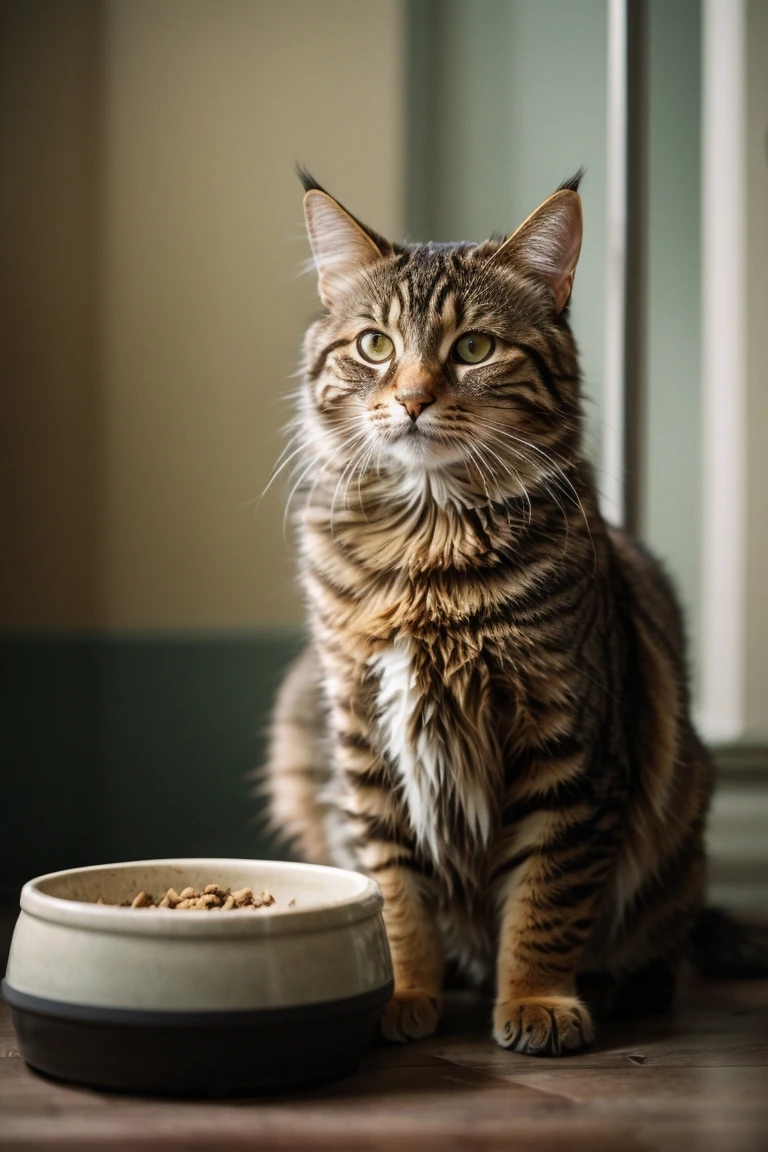Common Food Allergies in Cats and How to Address Them

Food allergies in cats can cause irritating skin problems and gastrointestinal issues like vomiting and diarrhea. While not extremely common, food allergies are estimated to be the third most frequent allergy for cats after flea bites and inhaled substances. Understanding the causes, symptoms, and treatments for feline food allergies is important for any cat owner. This comprehensive guide covers everything you need to know about identifying and managing food allergies in cats.
What Causes Food Allergies in Cats?
A food allergy occurs when a cat's immune system overreacts to a particular food protein. The proteins cats most commonly develop allergies to include:
- Beef
- Fish
- Chicken
- Dairy
Cats can develop an allergy even to proteins they've eaten for years with no issues. Food allergies tend to develop later in life, usually around age 1-6 years.
The exact cause is unknown but may be influenced by:
- Genetics
- Alterations in gut bacteria
- Defects in the intestinal barrier
Certain breeds like Siamese and Devon Rex seem more prone to food allergies. Male cats also have a slightly higher risk than females.
Symptoms of Food Allergies in Cats
The most common symptom of food allergies in cats is itchy skin and ears, which may lead to:
- Hair loss
- Red, inflamed skin
- Skin infections
Gastrointestinal signs can also occur in around 10-15% of cases:
- Vomiting
- Diarrhea
- Increased or decreased appetite
- Gas
- Weight loss
Less common symptoms include:
- Sneezing, coughing, wheezing
- Paw chewing/swollen paws
- Itchy, runny eyes
Symptoms typically begin within a few hours to days after eating the offending food. They can be mild or severe.
Diagnosing Food Allergies in Cats
Diagnosing food allergies in cats can be tricky since the symptoms mimic other conditions like flea allergy dermatitis. Your vet will start by ruling out other causes through:
- Medical history and physical exam
- Skin scraping to check for parasites
- Blood tests to assess overall health
Elimination Diet Trial
The gold standard for confirming food allergies is an elimination diet trial lasting at least 8 weeks. This involves feeding a hypoallergenic novel protein diet containing ingredients your cat has never eaten before, such as:
- Rabbit, duck, venison, kangaroo
- Hydrolyzed soy, corn, or wheat
- Potato, pea, chickpea
Your cat cannot have any treats, flavored medication, or food toppings during the trial. If symptoms resolve on the elimination diet, a food allergy is confirmed.
Food Allergy Testing
Specialized food allergy tests like skin tests and blood tests can sometimes be used. However, these are less reliable than an elimination diet trial. Testing may help identify which specific ingredients your cat is allergic to after a food allergy is confirmed.
Treating Food Allergies in Cats
The main treatment for food allergies in cats is an elimination diet long-term or possibly for life. This means avoiding the protein(s) your cat is allergic to.
Your vet will recommend a prescription hypoallergenic cat food such as:
- Royal Canin Ultamino, Rabbit, Duck, Venison
- Purina Pro Plan Veterinary Diets HA Hydrolyzed
- Hill's Prescription Diet d/d Duck or Venison
It's crucial to avoid giving your cat any people food, treats with unknown ingredients, flavored medication, dental treats, or chews. Read all product labels carefully.
Cats with food allergies usually need to stay on the elimination diet continuously. Challenging with the problem protein after symptoms resolve often leads to recurrence.
If diet alone doesn't control symptoms, medications your vet may prescribe include:
- Antihistamines like diphenhydramine
- Fatty acid supplements
- Steroids or Apoquel for severe cases
With appropriate management, most cats with food allergies can enjoy a good quality of life. Work closely with your veterinarian to find the right diet and treatment plan for your cat.
Tips for Transitioning Your Cat to a Hypoallergenic Diet
Switching your cat to a new limited ingredient diet can be challenging. Here are some tips to help the transition go smoothly:
- Gradually transition over 5-7 days by mixing in increasing amounts of the new food.
- Make sure your cat is eating enough calories daily. Cats need 20-30 calories per pound per day.
- Warm the food slightly to increase aroma and palatability.
- Try different protein sources if your cat refuses a certain diet.
- Consider adding broths or cat milk designed for food allergies.
- Feed hypoallergenic treats made with the same novel protein.
- Give medication in pill form rather than flavored liquid if possible.
- Stick with it! It may take 2-3 weeks for your cat to fully adapt.
Prevention of Food Allergies in Cats
While you can't completely prevent food allergies in cats, you can reduce risk by:
- Feeding a high-quality cat food with quality control standards
- Avoiding excessive treats and people food
- Not switching foods frequently or unnecessarily
- Keeping your cat at a healthy weight
Talk to your vet about the ideal diet for your individual cat based on health status and risk factors. With vigilance and prompt treatment, cats with food allergies can live happy and comfortable lives.